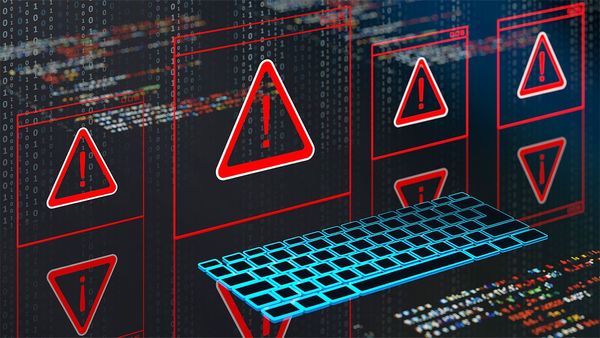Feeling glum about your finances? You could have relationship problems with money. And it could take a toll on your mental health.
May is Mental Health Awareness Month. It's a great time to take a deep dive into your money psyche to see if the way your brain is wired for money is healthy or dysfunctional.
First off, if worries about bills, debt, and your 401(k) cause angst, you're not alone.
Money weighs on the minds of most Americans, according to the American Psychological Association's "2023 Stress in America" survey. More than 80% of 18-to-34 year-olds say money is a "significant stressor." The same can be said for 77% of 35-44 year-olds, 63% between the ages of 45 and 64, and nearly half of Americans older than 65.
Your Mental Health Relationship With Money
Just as you can have relationship issues with your spouse, boss or friends, you can have problems related to your kinship with money. In fact, 52% of adults say money has a "negative impact" on their mental health, a 2023 Bankrate survey found.
So, what is it about money that twists people's nervous systems into a pretzel?
"I don't think anybody ever feels like they've got enough money, no matter how much money they have," said Anne Lester. Lester is author of "Your Best Financial Life: Save Smart Now for the Future You Want," and former head of retirement solutions for JPMorgan Asset Management.
In fact, Lester was recently at an event with a group of billionaires. And she says even they were worried about making their money last in retirement and maintaining their lifestyle. Sound familiar?
Most people want more money than they have. "That's hardwired into us," said Lester.
How Much Is Enough?
And from a mental health standpoint it takes a lot of knowledge and self-introspection to understand how much is enough. Money is often the way people keep score in their lives. The problem, Lester says, is there's no right answer.
"There's no mathematical formula that will say, 'You're done. You've done it right. And that is enough,' " said Lester.
What Lester says she does to quiet her own financial anxieties is run scenarios that show her that she's going to be just fine.
"OK, what if stuff goes wrong?" Lester explained. "What's your Plan B? What's your Plan C or Plan D?" After running all these calculations, you'll get a better idea of how bad things need to get before you're really in big trouble, she says.
Spotting Problems With Money Mental Health
Identifying fault lines in your money world is no different from spotting problems in a marriage or with alcohol. If you're constantly checking your account balance because you think you won't be able to make ends meet, that's a red flag.
So is waking up at night worried about a credit card bill or mortgage payment. Or going to the mall and getting to the cash register and "running the numbers in your head and thinking, 'OK, how am I going to make this work,' " said Lester.
More broadly speaking, Lester warns of two polar opposites when it comes to money that screams danger.
"If you always think about money or you never think about money, I think those both are unhealthy," said Lester.
Know What Money Is For
A healthier way to view money is to view it for what it is: a means to an end. If you start obsessing over your account balances to the point that you're not able to think about other things in your life that bring you joy, you likely have a problem that needs addressing.
There are self-help steps you can take to help identify your money issues and how they might be holding you back.
One tip is to go online and fill out online survey questions that will give you an idea of your "money type," says Lester. NerdWallet and Ramsey Solutions offer similar online surveys.
The more you know about what drives your thinking about money the better.
"It allows you to start getting curious about yourself, your habits, your triggers," said Lester. "Are you spending unconsciously? Are you drawn to risky investments or dabbling in crypto or day trading? Just understanding your own wiring is huge. It's a huge first step to developing a better relationship with money."
Control Your Impulses
No doubt, the more you know about your impulses, the better chance you have of controlling bad financial behavior.
Lester, for example, admits that while she has great impulse control when managing other people's money, she has less control keeping her own wallet shut while shopping. "Put a shiny pair of shoes in front of me, and I'm like, yeah, I want those," said Lester.
Many people like her do the same thing and get into financial trouble because of the way they deal with the answer to this question: "Do I have enough money to pay for the shoes? I don't know. I'll figure it out."
Guardrails are good, says Lester. And the more insights you have into your spending triggers, the more restraint you might have. "The better you understand how you're wired for money, the better you can figure out what guardrails you need to put around yourself," said Lester.
Watch Your Money Mental Health Triggers
Once you know your triggers, it's easier to build winning money habits, like not running up credit card debt and not saving 15% of your paycheck each month.
One goal is to force yourself to stop and think before making financial decisions.
"You must figure out ways to slow yourself down, how to put sand in your gears and create friction for your purchase," said Lester.
Skip Your Credit Balances
Examples include never carrying a balance on a credit card and having savings automatically deducted from your paycheck so you can't spend the money. If you don't see the money sitting in your checking account, you can't spend it. It's akin to not buying Oreos at the store so they're not on the kitchen counter when you're craving a sweet.
It's important to note that if you're doing everything right with your finances, such as setting up an emergency fund and investing in a diversified retirement account that meets your risk tolerance, you really should let it go and not worry about money.







